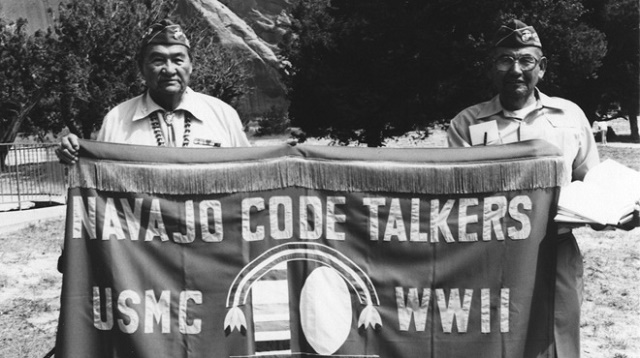During the Second World War, Navajo code talkers helped the Allies to retain secrecy by using an unwritten language with which our enemies were completely unfamiliar and could therefore not decipher. While this was incredibly vital to many efforts during the war, these men were not always revered or even treated fairly. In Arizona, for instance, code talkers did not receive voting rights until after the war had already been won.
That is not to say that they were given voting rights directly following the end of the conflict. Instead, two Native Americans had to file a lawsuit three years after victory had been achieved. It was in July of 1948 that WWII veterans living at the Fort McDowell Yavapai Reservation began the legal battle to secure voting rights for Navajo code talkers. In doing so, they secured this right for all Native Americans living in Arizona. Prior to their lawsuit, only Arizona and about two other states would not grant this right. Native Americans in many other states already had the right under the Indian Citizenship Act of 1924.
This lack of voting rights was piled on top of numerous difficulties faced by returning Navajo veterans, especially those living on the reservation. Many veterans already had trouble securing work upon their return from the conflict, but many code talkers did not live in urban areas and so employment was even scarcer. With little in the way of food or funding, the lack of civil rights was more apparent and much more grievous, the azcentral reports.
The United States started to become somewhat more acceptant of minorities following the war, due in large part to the fact that minorities risked their lives alongside whites to fight a common enemy. The code talkers were especially vital in Iwo Jima. Not only were they important in their normal capacity, but one of them even helped to raise the American flag there. It was not irrational for them to assume they might have more rights upon their return.
The Navajo code talkers lent a vital hand during a war in which the Allies had major difficulties devising a code which could not be deciphered by the enemy. Despite this, their civil rights were not immediately granted at war’s end. They had to fight for their rights as citizens in the court room just to achieve voting rights. While they are frequently honored today, the Navajo code talkers were not recognized as eligible voters in Arizona without demanding the right themselves.
